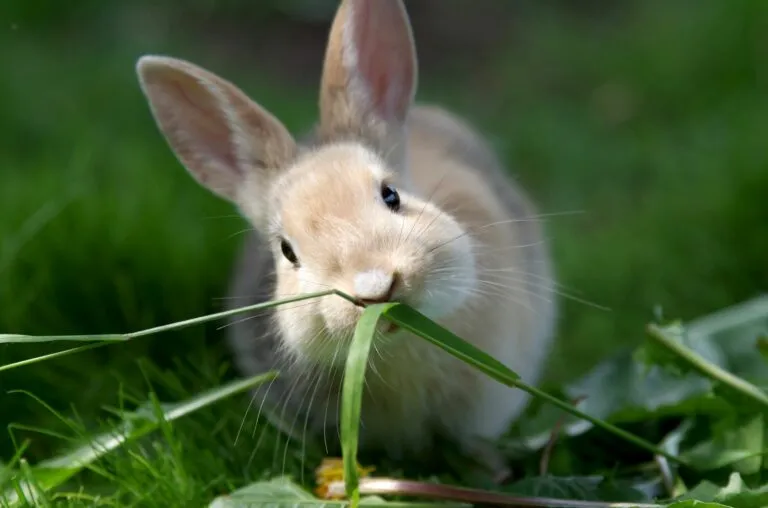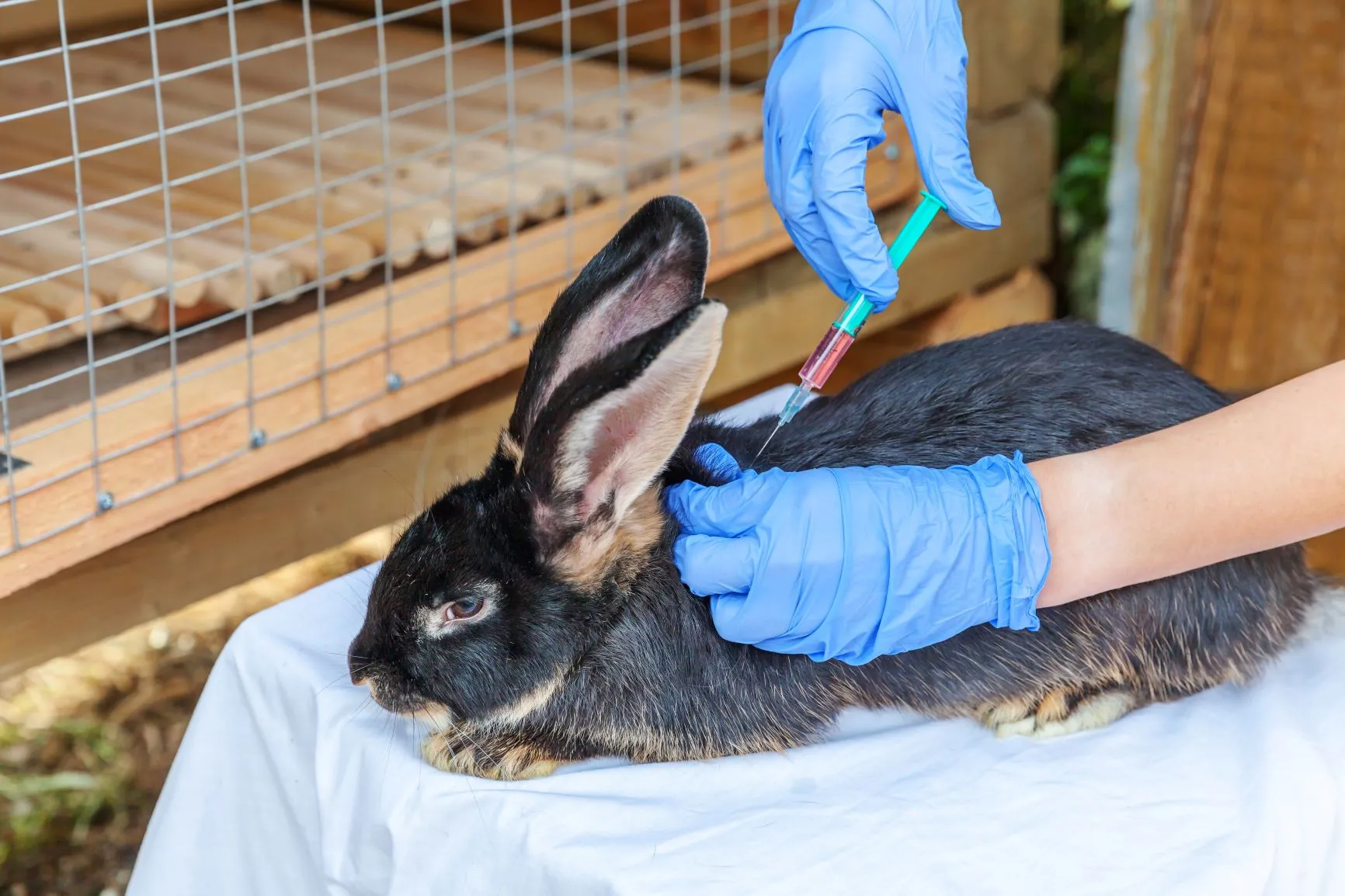The Digestive System of Hamsters
This guide applies to golden Syrian hamsters and dwarf hamsters. Despite being different species, these pet rodents are similar in their internal makeup and their nutritional needs.
It's clear to dog and cat owners that their pets need vaccinating. But does the same apply for rabbits? And what diseases should my rabbit be vaccinated against? We have summarised the most important information on the subject of vaccination for you in the following article.

© cuhle-fotos / stock.adobe.com
You shouldn't just vaccinate rabbits that are kept outdoors.
Vaccinations make sense for all healthy rabbits. This also applies to rabbits that are kept indoors all year around, because the diseases they are vaccinated against are highly contagious and prove fatal in most cases.
As well, rabbits don’t just infect each other. There are many other carriers. Flies in your home or even your clothing potentially carry the risk of infection. Last but not least, you can even introduce pathogens via fresh food you have collected yourself.
Core vaccinations are vaccinations that every rabbit should receive regularly. Vaccination is carried out against pathogens that can affect small pairs of rabbits as well as larger populations. In addition, the pathogens that the vaccines combat can often prove life-threatening for rabbits. Hence, these vaccinations are compulsory for all rabbits.
There are non-care vaccinations as well as the core ones. However, non-core vaccinations are only given to particularly endangered rabbits. This mostly affects rabbits in larger populations, where rabbit snuffles, for instance, can lead to major problems. In such a case, all rabbits from a particular population would have to be vaccinated.
The same applies for clostridia infections. These are bacteria that are sometimes a problem in breeding farms. Here too, the vet would vaccinate all rabbits from the population.
There are two significant diseases against which every rabbit should be vaccinated:
Myxomatosis is an infection caused by the myxoma virus. Both wild and domestic rabbits are at risk. Rabbits become infected either by direct contact or indirectly via mosquitoes and other insects. With domestic rabbits, transmission via infected fodder grass plays a big role.
Nodular swellings in the subcutis are typical of this diseases. The head and genital area are particularly affected. It can also result in fever and purulent nasal and ocular discharge.
Most rabbits die after around two weeks, because they cannot consume enough food due to the significant swellings. However, sudden deaths occur time and time again without the affected rabbits having shown symptoms beforehand.
Rabbit haemorrhagic disease poses a particularly insidious threat. Most rabbits die very suddenly or within a few hours without showing any real symptoms. If symptoms do appear, the predominant ones are bleeding, fever and shortness of breath.
The disease is triggered by the rabbit haemorrhagic disease virus (RHD virus) from the calicivirus family. Until 2014, the virus mostly affected adult rabbits.
Like with myxomatosis, rabbits get infected either directly through contact with infected fellow rabbits or indirectly from insects or inanimate objects (e.g. food bowls or other cage equipment).
Rabbits will ideally receive their first vaccination between four and six weeks of age. Another vaccination is given after three to four weeks for complete basic immunisation against myxomatosis. The vaccination may have to be repeated once or twice a year.
Vaccination introduces weakened, live or inactive viruses into the rabbit. As a result, the rabbit’s body develops antibodies against the virus and can better fight off any infections that may follow.
There are both combination and single vaccines available for both diseases. Your vet will discuss extensively with you in advance which version is best for vaccinating your rabbit.
 © Юлия Завалишина / stock.adobe.com
© Юлия Завалишина / stock.adobe.com
| Vaccine | Myxomatosis | RHD 1 and 2 | First vaccination | Follow-up dose |
| Filavac VHD K C+V | x | from 10 weeks | annual | |
| Nobivac Myxo-RHD Plus | x | x | from 5 weeks | annual |
| Rika-Vacc Myxo sc | x | from 4 weeks | biannual |
The most important thing before vaccinating your rabbit is that it must be healthy! Hence, the vet will examine your rabbit thoroughly beforehand, because only a healthy immune system can develop antibodies and severe side effects are very unlikely.
The vet may also arrange a faecal examination for parasites. If your rabbit is suffering from a parasite infestation, insufficient antibodies will be formed.
Minor side effects may include:
Swelling around the injection site normally goes down after three weeks at the latest. Fever and fatigue should subside after two to three days. If this is not the case, take your rabbit to your vet again.
The costs for vaccination always result from a combination of the vet’s services (examination with consultation, vaccination and vaccination certificate) and the costs for the vaccine.
Keep in mind that the costs of vaccinating your rabbit are significantly less than the costs you would face if your rabbit were infected. Moreover, they cannot be outweighed against the possible death of your rabbit.
This guide applies to golden Syrian hamsters and dwarf hamsters. Despite being different species, these pet rodents are similar in their internal makeup and their nutritional needs.
The guinea pig digestion is very complex. Disorders of digestion are usually caused by errors in feeding for these rodents. Find out about all the different stages of the Guinea Pig anatomy that play a role in the digestion process.
A healthy guinea pig will take care of its health and beauty regimen itself by and large. It will use its claws to remove dirt and dust from its fur and use its tongue to lick itself clean.